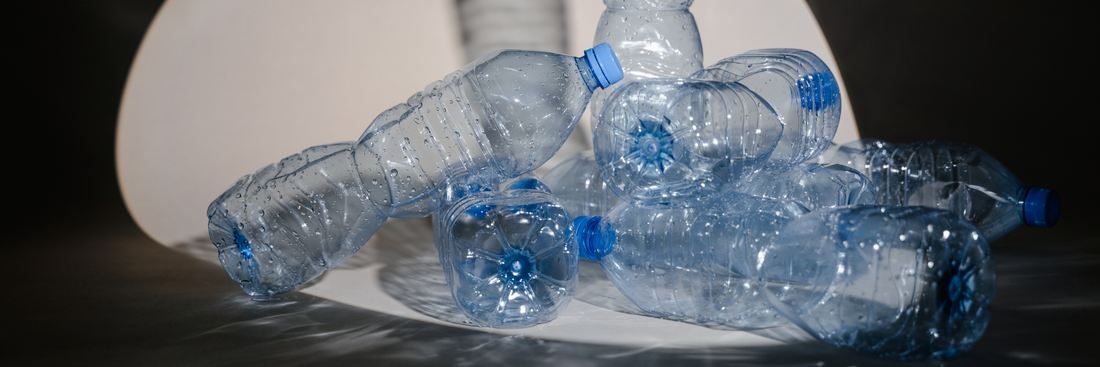Plastic bottles are widely used to store water and other beverages. However, a common question is: is it safe to store hot water in plastic bottles? Many people are concerned about the possibility of plastic leaching chemicals when exposed to high temperatures. This article will provide a detailed look at the use of plastic bottles to store hot water and the potential health risks.
The Science Behind Plastic and Heat
Plastic bottles are made from a variety of plastics, including polyethylene terephthalate (PET), polypropylene (PP), and high-density polyethylene (HDPE). These plastics are generally safe to use with cold or room temperature water, but when exposed to high temperatures, their chemical structure can change. High temperatures cause the plastic molecules to expand, leading to the leaching of chemicals, especially chemicals like BPA (Bisphenol A) and phthalates, both of which are known endocrine disruptors and potentially harmful to health.
When hot water is poured into a plastic bottle, the plastic molecules can release chemicals into the water, especially if the plastic bottle is reused multiple times. These chemicals not only cause an unpleasant plastic smell, but can also cause long-term health problems, including hormone-related diseases and even cancer.
BPA-Free Doesn't Mean Safe
In recent years, many plastic products have been labeled “BPA-free,” leading many to believe that they are completely safe. BPA is a chemical commonly found in plastic products that has been shown to interfere with the hormone estrogen, causing problems with reproductive health and child development.
For this reason, many countries have banned the use of BPA in products that come into direct contact with food and beverages. However, the removal of BPA does not mean that plastic bottles are completely safe when exposed to high temperatures. Studies have shown that even if they are BPA-free, plastic bottles can still release other toxic chemicals, such as BPS (Bisphenol S) and BPF (Bisphenol F), which are similar to BPA and can cause endocrine disruption.
Health Risks of Drinking Hot Water from Plastic Bottles
Using plastic bottles to store hot water not only increases the risk of releasing harmful chemicals, but can also cause a number of serious health problems, including:
- Increased toxin leaching: When plastic bottles are exposed to high temperatures, the plastic molecules begin to break down and release toxic chemicals such as phthalates and styrene into the water. These chemicals have been shown to disrupt hormones and affect the reproductive system.
- Effects on endocrine disruption: Some chemicals found in plastic bottles can act as xenoestrogens, a type of fake hormone that can disrupt the endocrine system. Long-term exposure to these chemicals can lead to reproductive health problems, including infertility, and an increased risk of hormone-related diseases, such as breast and prostate cancer.
- Long-term risks and scientific findings: Research has shown that long-term exposure to chemicals in plastics, especially when they are heated, can cause toxic build-up in the body. This can lead to chronic diseases such as diabetes and obesity, along with cardiovascular problems.

Which Plastic is Safe For Boiling Water?
Not all plastics are unsafe. Some plastics, such as HDPE (high-density polyethylene) and PP (polypropylene), are considered safer when exposed to high temperatures. These plastics are often used in the production of heat-resistant food containers, such as food containers and heat-resistant water bottles.
However, even with these plastics, you should be cautious when using them to store hot liquids. Although these plastics are more heat-resistant, they can still degrade and release chemicals if exposed to extremely high temperatures for long periods of time.

Safe Materials for Hot Water
If you are looking for safer options for storing hot water, glass and stainless steel are two of the best options. Not only is glass safe, it can also withstand high temperatures without degrading or releasing any harmful substances. Stainless steel is also a great material for hot drinks, especially thermoses and thermoses.
Ceramic products are another safe option for hot drinks. Not only are they environmentally friendly, but they also help retain the natural flavor of the water without the plastic smell.

Best Practices for Using Plastic Bottles
If you still decide to use plastic bottles, there are a few steps you can take to minimize the risk:
- Avoid using plastic bottles for hot liquids: If possible, avoid using plastic bottles for hot drinks. Instead, use them for cool or room temperature water.
- Use heat-resistant plastic bottles: If you must use plastic bottles for hot drinks, make sure you use bottles that are specifically designed to withstand heat, such as those made from PP or HDPE.
- Clean and store properly: After each use, make sure your plastic bottles are cleaned and stored in a cool, dry place away from direct sunlight.
Environmental Concerns: The Impact of Heat on Plastic Bottles
In addition to health risks, heating plastic bottles also has a negative impact on the environment. When plastic bottles are heated, the plastic structure becomes more fragile and breaks down more quickly, leading to increased plastic waste. When plastics decompose under the influence of heat and sunlight, they also release volatile organic compounds, contributing to air and soil pollution.
FAQs About Hot Water in Plastic Bottle
Can You Put Hot Water in BPA-free Plastic Bottles?
Although BPA-free plastic bottles are safer than BPA-containing ones, they should still not be used for hot water. Other chemicals in the plastic can still leach into the water when exposed to high temperatures.
What Temperature is Too Hot for a Plastic Bottle?
Any temperature above 60°C (140°F) is considered too hot for most plastics. At this temperature, the plastic can start to release toxic chemicals.
What Materials Are Safe For Hot Water?
Glass and stainless steel are the safest options for hot water. Not only are they durable, but they also do not release any toxic chemicals into the water.
Are All Plastics Unsafe For Hot Liquids?
Not all plastics are unsafe, but high-density polyethylene (HDPE) is generally safer. Still, it’s better to avoid using plastic for hot liquids altogether.
Why Does Plastic Smell When Heated?
The smell is caused by chemicals breaking down and being released, which indicates potential contamination of the liquid inside.
Conclusion
Storing hot water in plastic bottles is not a healthy option. The risks of chemical leakage and long-term health effects cannot be ignored. To protect your health, you should use alternatives such as glass or stainless steel bottles. This is not only safer for you but also helps protect the environment.




